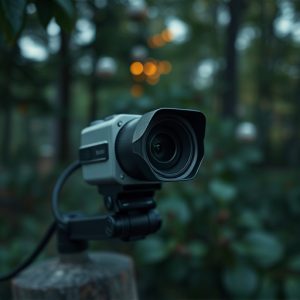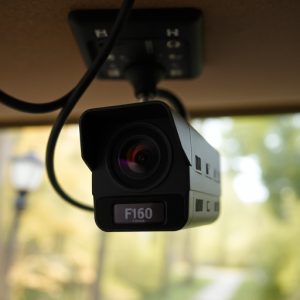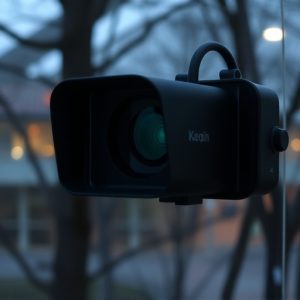Uncovering Hidden Cameras: Exploring Body-Worn Surveillance in Rentals
Body-Worn Surveillance Camera Systems (BWSS) enhance rental property security by providing real-time…….
Body-Worn Surveillance Camera Systems (BWSS) enhance rental property security by providing real-time video footage, covering areas static cameras cannot reach and capturing unscripted events. However, their deployment must balance tenant privacy with landlord security concerns, adhering to local laws and data protection regulations. These systems, often hidden in everyday items, raise ethical debates due to their intimate surveillance capabilities; strict rules govern their use, emphasizing transparency, consent, and respect for individuals' rights and personal freedom.
In the evolving landscape of rental property management, the discreet deployment of body-worn surveillance camera systems has emerged as a controversial yet increasingly common practice. This article delves into the intricacies of these devices, exploring their functionality and the legal ramifications for landlords and tenants alike. We uncover uncommon placement spots where these cameras are hidden, raising critical privacy concerns while examining ethical considerations in residential settings. By understanding Body-Worn Surveillance Camera Systems, stakeholders can navigate this complex issue with awareness and sensitivity.
- Understanding Body-Worn Surveillance Camera Systems in Rentals
- Legal Considerations for Landlords and Tenants
- Uncommon Placement Spots for Secret Surveillance in Rental Properties
- Privacy Concerns and Ethical Use of Body Cameras in Residential Settings
Understanding Body-Worn Surveillance Camera Systems in Rentals
Body-Worn Surveillance Camera Systems (BWSS) are increasingly becoming a common feature in rental properties, offering landlords and property managers enhanced security measures. These systems allow for discreet monitoring of various areas within a rental unit or premises, providing real-time video footage that can be reviewed for security, safety, and even evidentiary purposes. BWSS are typically worn by individuals, such as security guards or maintenance staff, who move throughout the property while capturing footage.
The use of these cameras provides several advantages. They offer a more comprehensive view compared to static security cameras, allowing for better coverage of high-risk areas or hard-to-reach spots. Moreover, BWSS can capture unscripted events as they unfold, offering valuable insight into potential issues or incidents that may arise. However, it’s crucial to remember that the deployment and use of these systems must adhere to local privacy laws and regulations, ensuring that tenants’ rights are respected while maintaining an effective security environment.
Legal Considerations for Landlords and Tenants
When it comes to secret surveillance in rental properties, landlords and tenants alike must navigate a complex landscape of legal considerations. The use of body-worn surveillance camera systems, for instance, raises important privacy rights and expectations. Tenants generally expect a certain level of privacy within their homes, which is protected by law. Landlords, on the other hand, have a legitimate interest in maintaining safety and securing properties, especially in cases of potential tenant misconduct or property damage.
Striking a balance between these interests is crucial. Landlords must inform tenants about any surveillance systems present, ensuring transparency and compliance with data protection regulations. Tenants should be aware of their rights to privacy and the extent to which their activities can be monitored. Legal boundaries are set by laws that govern the acceptable use of surveillance technology, and both parties must understand these limits to avoid potential legal repercussions.
Uncommon Placement Spots for Secret Surveillance in Rental Properties
In the realm of secret surveillance, rental properties can hide unexpected monitoring systems. Beyond traditional cameras, Landlords and property managers are increasingly employing innovative methods to ensure security. Uncommon placement spots for such covert surveillance include hidden within everyday items like smoke detectors, ceiling fans, and even light switches. These body-worn surveillance camera systems, as they’re sometimes called, offer a subtle yet effective way to monitor activities without raising suspicion.
Furthermore, some advanced setups utilize smart home technology, integrating cameras into seemingly innocuous devices connected to the internet of things (IoT). This allows for remote access and real-time monitoring from anywhere, providing an added layer of discretion and control. Such stealthy surveillance tactics raise ethical considerations but also contribute to enhanced property security and peace of mind for both tenants and owners.
Privacy Concerns and Ethical Use of Body Cameras in Residential Settings
The use of body-worn surveillance camera systems in rental properties raises significant privacy concerns for tenants. These devices, often disguised as everyday accessories, can capture intimate and personal moments within a resident’s private space. In many jurisdictions, there are strict regulations regarding the installation and operation of hidden cameras to protect individuals’ right to privacy. Tenants have a reasonable expectation of privacy in their homes, and any surveillance must adhere to legal guidelines to ensure consent and transparency.
From an ethical perspective, the deployment of body-worn cameras should be limited to specific, well-defined circumstances. Landlords or property managers considering this technology must balance security needs with potential intrusions on tenant privacy. Transparent communication about the presence of such devices is crucial. Moreover, any footage captured should be securely stored, accessed only for legitimate reasons, and used in a manner that respects individual rights, ensuring a harmonious relationship between security measures and personal freedom.
While Body-Worn Surveillance Camera Systems (BWSCS) offer potential benefits for landlords in rental properties, it’s crucial to balance these advantages with significant legal and privacy considerations. Uncommon placement spots for secret surveillance, as discussed, raise ethical questions about the right to privacy. Landlords must ensure transparent communication with tenants regarding camera usage, adhering to local laws, and respecting personal boundaries. Tenants, too, should be mindful of their rights and take proactive steps to protect their privacy in residential settings equipped with BWSCS.


